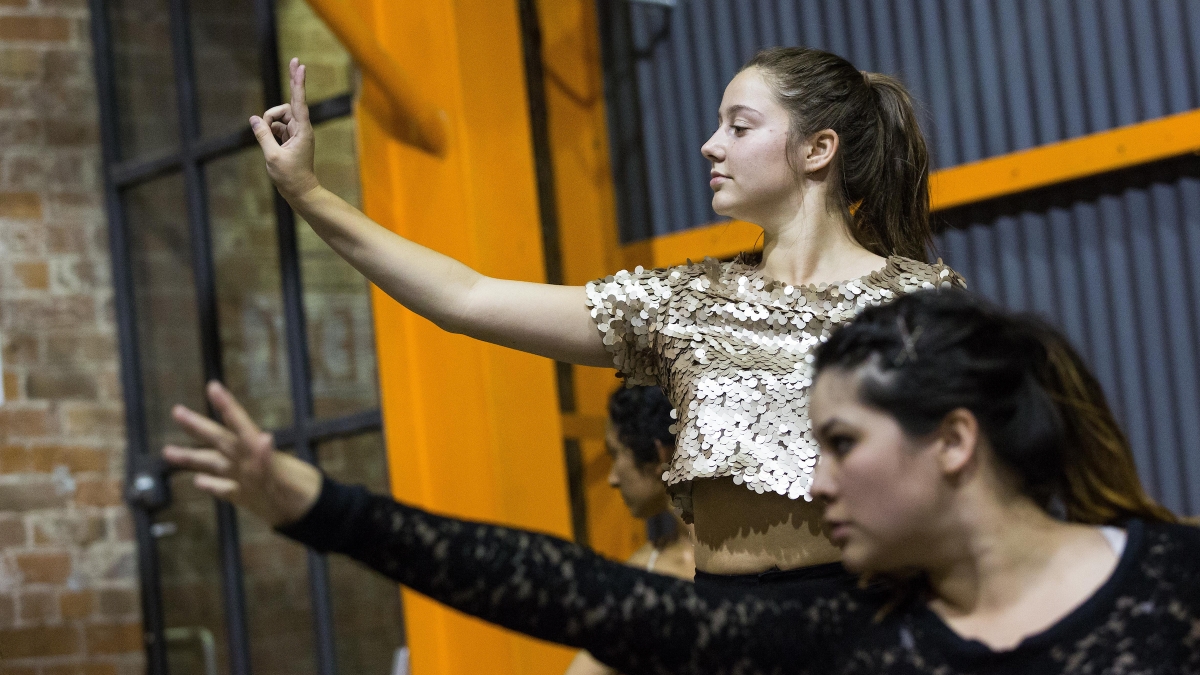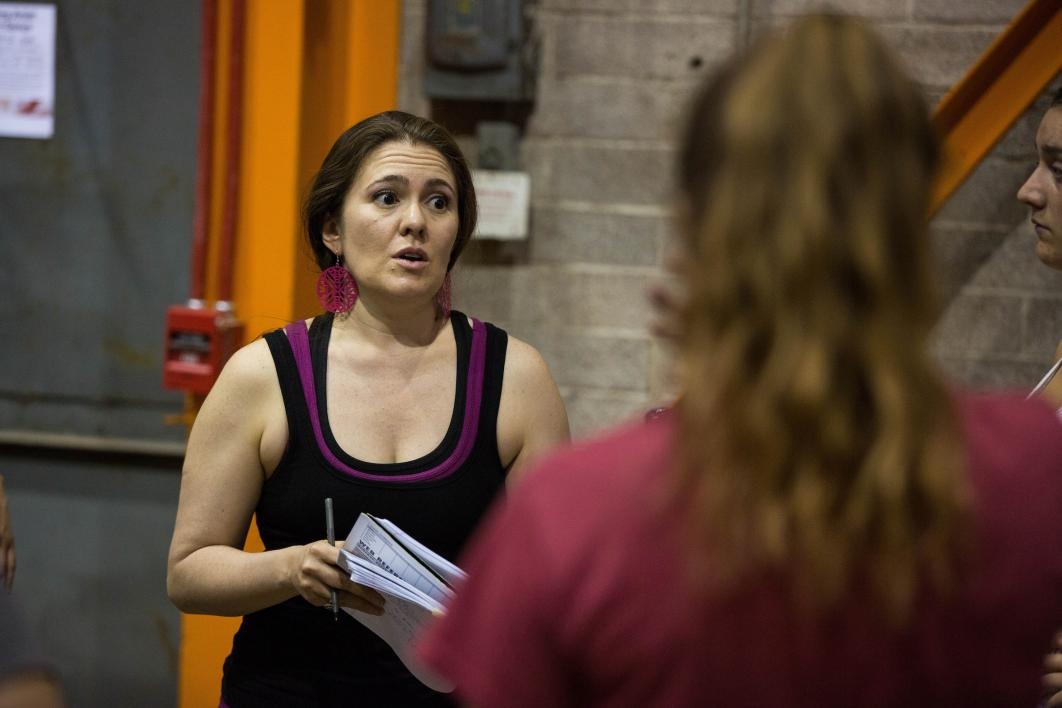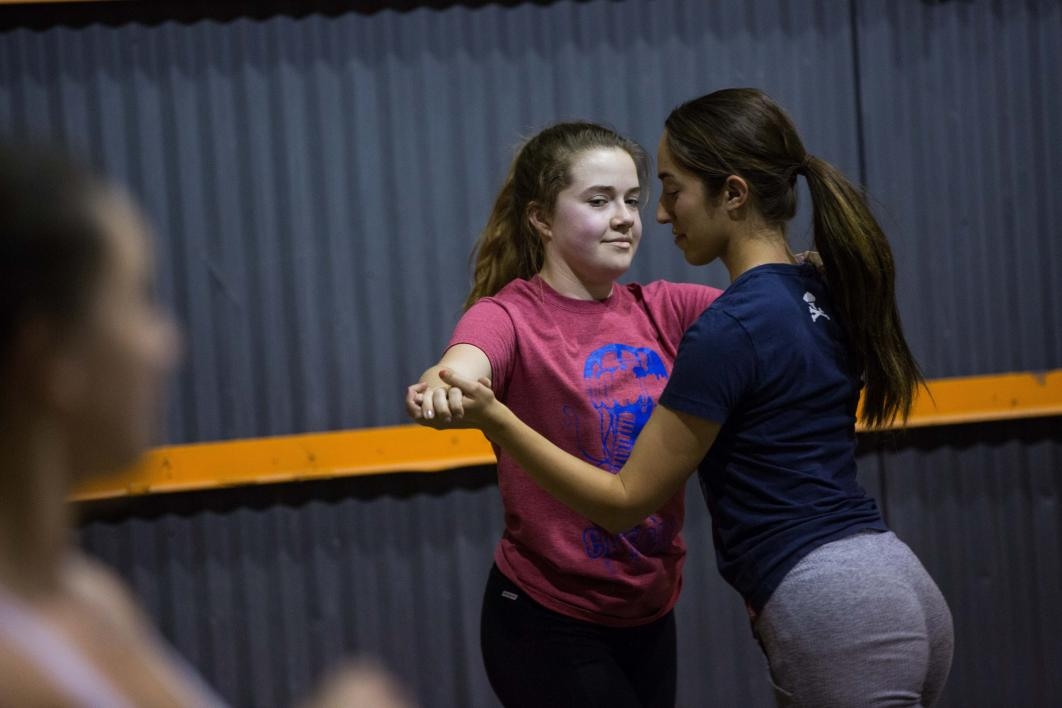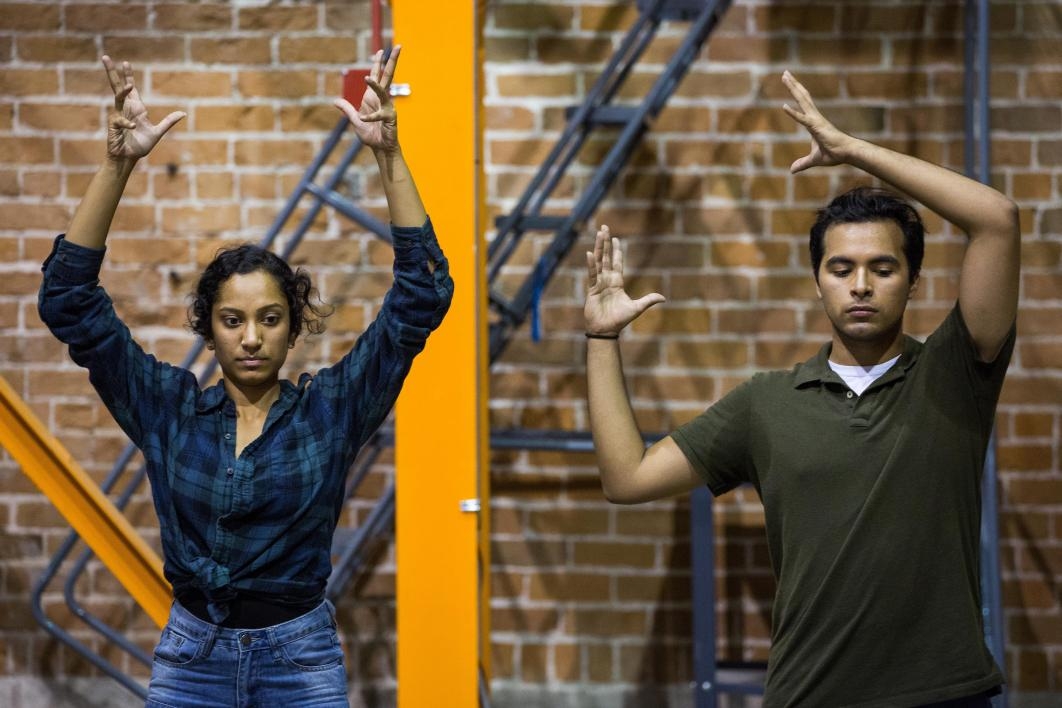A fellow at the Herberger Institute for Design and the Arts is gathering people in the Latinx dance community to forge bonds and consider a closer collaboration.
“Dance in the Desert” is a three-day assembly in Phoenix that will culminate in two public events on Saturday.
Yvonne Montoya, a choreographer and fellow in the School of Film, Dance and Theatre, got the idea to create a gathering a few years ago when she attended a dance event as a mentee and asked to be paired with a Latina choreographer. The organization knew of only one and she was busy.
“The leadership couldn’t identify a multiplicity of mentors for the younger generation of Latinx choreographers,” said Montoya, founding director of Safos Dance Theatre in Tucson.
“I realized we were very disconnected and disenfranchised. I had the idea of bringing us all together to get to know each other, who we are, where we’re located and what we’re doing.”
Montoya said the group will talk about whether to become more organized.
“This is a pre-convening. It’s not even a pilot,” she said. “It’s for us to talk about our strengths and how we want to move forward.”
Montoya organized the event as part of her work as a Projecting All Voices postgraduate fellow, an initiative of the Herberger Institute for Design and the Arts to advance the creative voices of underrepresented communities.
Much of the Dance in the Desert assembly will be private for the 29 participants, who are dancers, choreographers, administrators and students.
“The choreographers can show works in progress and get feedback from not just a group of peer dancemakers but also a group of other Latinx dancers who understand if they’re doing a flamenco contemporary fusion dance. A lot of times, our mentors don’t understand diverse aesthetics or the aesthetics in which we work that are culturally relevant.”
Video by Deanna Dent/ASU Now; "Braceros" music by Samuel Peña, ASU School of Music community engagement coordinator and founder of AZ Beat Lab
Montoya said the event will include dancers from a variety of forms.
“It’s not just concert dance or contemporary dance. We have flamenco artists. We have dancers who are trained in urban or hip-hop. It’s across the board. And that’s a question we’ll be asking: ‘How do we define dance as individuals but also in our different communities?’ There’s a huge diversity.”
She would like to have an officially organized event within the next two years.
“I think there is so much potential here in Arizona to be a center for dance in this region, which is something that’s lacking. We’re a border state so we’re a gateway to Latin America.
“I think we have the population to support work that’s created by Latin American or Latinx dance makers, and I think this is a pivotal moment to come together, share social capital and move forward.”
Dance in the Desert will include two public events on Saturday, April 28: A “Community Share Out” will include a performance and open discussion from 2:30 to 4:30 p.m. at Grant Street Studios, 605 E. Grant St. in Phoenix. The “Pachanga” will include performances and a reception from 5 to 7 p.m. at Phoenix Hostel and Cultural Center, 1026 N. Ninth St.
Top photo: Dance performance freshman Genna Oppasser (top) and other dancers practice their routine during rehearsal at Grant Street Studios in Phoenix. Photo by Deanna Dent/ASU Now
More Arts, humanities and education

ASU alumna makes her way back to the ASU Gammage stage for '¡azúcar!'
As the Los Angeles-based CONTRA-TIEMPO dance group prepares for its upcoming production “¡azúcar!” at ASU Gammage, for one member of the dance group it is also a nostalgic return to her home.Born in…

ASU FIDM professor wins international award for fantastical, sustainable creation
The horror of an ailing Earth inspired an Arizona State University fashion professor to create a fantastical garment out of sustainable, re-used and found materials that won a prestigious…

ASU workshop trains educators, professionals from marginalized communities in disaster science
As devastating as hurricanes can be to anyone caught in their paths, they strike marginalized communities even harder.To address this issue, a fund named for a former Arizona State University…



